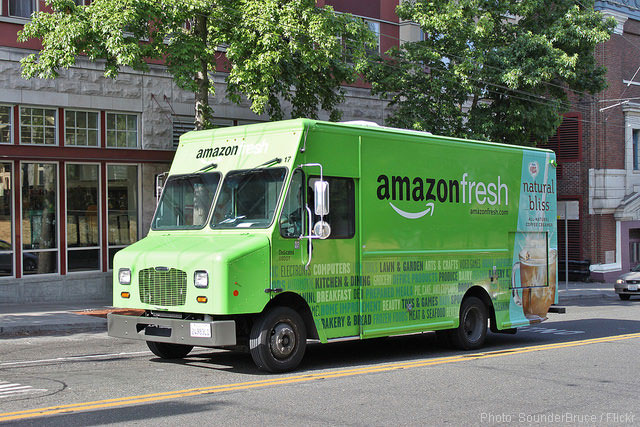- Amazon (AMZN) has settled for nearly $4 million with the District of Columbia over allegations of misusing customer tips for Amazon Flex drivers, following a $61.7 million FTC settlement in 2020 for similar actions, revealing a pattern of using tips to subsidize wage commitments.
- The allegations claim that from 2016, Amazon altered its payment model without transparency, lowering base pay and using tips to meet the promised $18-25 hourly wage range, a practice ceased after the FTC’s 2019 investigation.
- Despite denying the accusations, as noted in the settlement’s factual allegations section, Amazon is required to pay penalties and legal fees, improve transparency on how tips affect earnings, and has expressed through spokesperson Steve Kelly their focus on moving past this to support delivery partners and customers.
Amazon (AMZN) has agreed to pay nearly $4 million to settle allegations by the District of Columbia that it misused customer tips intended for its delivery drivers. This settlement, as reported by AP, follows a similar $61.7 million payment to the Federal Trade Commission in 2020 for analogous violations, highlighting a pattern of behavior where Amazon allegedly adjusted its payment model to subsidize its labor costs using tips. The issue centers around Amazon’s Flex program, where independent contractors use their own vehicles to deliver packages, with the company initially promising that all tips would go directly to the drivers but later using these tips to offset its wage commitments.
The case brought by DC’s Attorney General Brian L. Schwalb alleges that from 2016, Amazon changed its payment structure without informing either its customers or drivers. This change involved lowering base pay for drivers based on regional tipping averages and then using the tips to ensure drivers met the promised hourly wage range of $18 – $25. This practice was not disclosed until the FTC’s investigation in 2019 prompted Amazon to alter its policy.
Despite these allegations, Amazon, through spokesperson Steve Kelly, stated, “For nearly a decade, Amazon Flex has empowered delivery partners to earn extra money on their own schedules. Like any successful program, Amazon Flex has evolved over time, and this lawsuit relates to a practice we changed more than five years ago. While we continue to disagree with these allegations, we’re happy to have the matter behind us so we can continue to focus on supporting delivery partners and customers.”
The settlement, which explicitly states on page 2 of the factual allegations section that Amazon denies all claims by the District, requires the e-commerce giant to pay $2.45 million in penalties and $1.5 million in legal fees. Moreover, Amazon must now clearly communicate how tips affect driver earnings on both its website and app, aiming to ensure transparency going forward.
This case underscores ongoing challenges in the gig economy regarding the transparency of compensation and the ethical use of tips, reflecting broader debates about how companies manage and disclose payment practices to both their workforce and consumer base.
WallStreetPit does not provide investment advice. All rights reserved.
- Bulenox: Get 45% to 91% OFF ... Use Discount Code: UNO
- Risk Our Money Not Yours | Get 50% to 90% OFF ... Use Discount Code: MMBVBKSM
Disclaimer: This page contains affiliate links. If you choose to make a purchase after clicking a link, we may receive a commission at no additional cost to you. Thank you for your support!



Leave a Reply